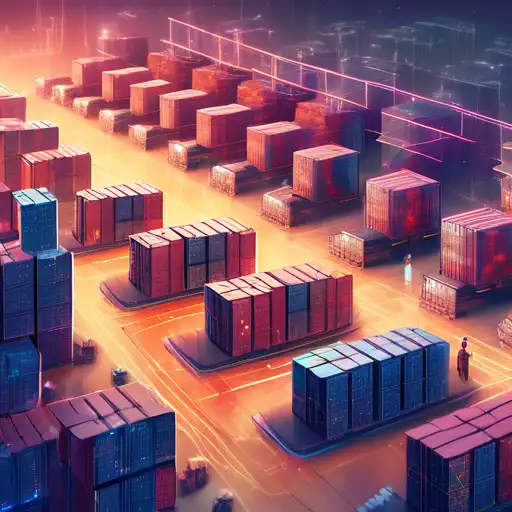The Transformative Power of Blockchain in Modern Supply Chains
In the digital age, blockchain technology is emerging as a revolutionary force in transforming supply chains across industries. By offering unparalleled transparency, security, and efficiency, blockchain is setting new standards for how goods are tracked and transactions are recorded. This article delves into the myriad ways blockchain is reshaping supply chains, ensuring a more transparent, secure, and efficient future.
Understanding Blockchain in Supply Chains
At its core, blockchain is a distributed ledger technology that allows data to be stored globally on thousands of servers. This means that every transaction or movement of goods can be recorded in a way that is immutable and transparent to all parties involved. For supply chains, this translates to a significant reduction in fraud, errors, and delays, fostering trust among stakeholders.
Key Benefits of Blockchain for Supply Chains
- Enhanced Transparency: Every transaction is recorded on a blockchain, providing a complete and unalterable history of a product from manufacture to sale.
- Improved Security: The decentralized nature of blockchain makes it nearly impossible to hack, ensuring the integrity of supply chain data.
- Increased Efficiency: By automating processes through smart contracts, blockchain reduces the need for manual oversight, speeding up transactions and reducing costs.
- Better Traceability: Companies can track the origin and journey of products in real-time, crucial for industries like food and pharmaceuticals where provenance is key.
Real-World Applications
Several industries are already leveraging blockchain to revolutionize their supply chains. For instance, in the food industry, blockchain enables consumers to trace the origin of their groceries, ensuring authenticity and safety. In manufacturing, it streamlines the procurement process, reducing delays and counterfeit parts. The pharmaceutical sector benefits from secure and transparent tracking of drugs, combating counterfeit medications effectively.
Challenges and Considerations
Despite its potential, the adoption of blockchain in supply chains is not without challenges. Issues such as scalability, interoperability, and the need for standardization across industries must be addressed. Moreover, the initial cost and complexity of implementing blockchain solutions can be prohibitive for some businesses. However, as technology advances and more success stories emerge, these hurdles are expected to diminish.
The Future of Blockchain in Supply Chains
The future looks promising for blockchain in supply chains. With continuous advancements in technology and growing awareness of its benefits, more companies are expected to adopt blockchain solutions. This will not only enhance operational efficiencies but also build stronger, more transparent relationships between businesses and consumers. As we move forward, blockchain stands as a pillar of innovation, driving the digital transformation of supply chains worldwide.
For more insights into how technology is shaping the future of industries, explore our technology trends section.
